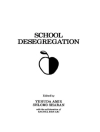This book outlines the foundations for understanding modern policing.
It is an essential introduction for all policing students and trainee police officers to the underpinning aspects of the profession, providing a clear understanding of how the police service is currently organised and how it fits into the wider criminal justice system. Students are encouraged to think critically and reflect upon core concepts such as policing by consent, police accountability, governance and professional standards, and it examines the challenges of policing an increasingly global, technical and diverse world.
The Professional Policing Curriculum in Practice is a new series of books that match the requirements of the new pre-join policing qualifications. The texts reflect modern policing, are up-to-date and relevant, and grounded in practice. They reflect the challenges faced by new students, linking theory to real-life operational practice, while addressing critical thinking and other academic skills needed for degree-level study.
Table of Content
Part One: The Context of Professional Policing
Chapter 1: The profession of policing
Chapter 2: Foundations and structure of the British Police Service
Chapter 3: Policing and the criminal justice system
Part Two: The Core Concepts of Policing
Chapter 4: Police governance and accountability
Chapter 5: Decision making and ethics
Chapter 6: Professional standards
Part Three: Professional Policing in Practice
Chapter 7: Policing in practice
Chapter 8: Policing and the vulnerable
Chapter 9: Crime in the twenty-first century
Answers
References
Index
About the author
Tony Blockley has served within policing for over 30 years, gaining extensive knowledge and understanding of policing organisation and practice. On retirement he had attained the rank of Chief Superintendent with the position of Head of Crime, responsible for leading 500+ multi-disciplinary staff within a complex and critical department servicing public protection, major and serious crime, serious and organised crime, terrorism, financial crime, fraud and forensic services.
As the lead for policing at Leeds Trinity University he is responsible for co-ordinating policing higher education, including developing programmes and enhancing current provision in line with the Police Education Qualification Framework (PEQF) while also supporting the College of Policing in the development of programmes.
He combines an extensive policing career with an understanding of the national curriculum, the requirements of the academic standards and the entry routes to policing, giving him a unique perspective and the necessary credibility to support his role as Editor of Critical Publishing’s new policing series.












